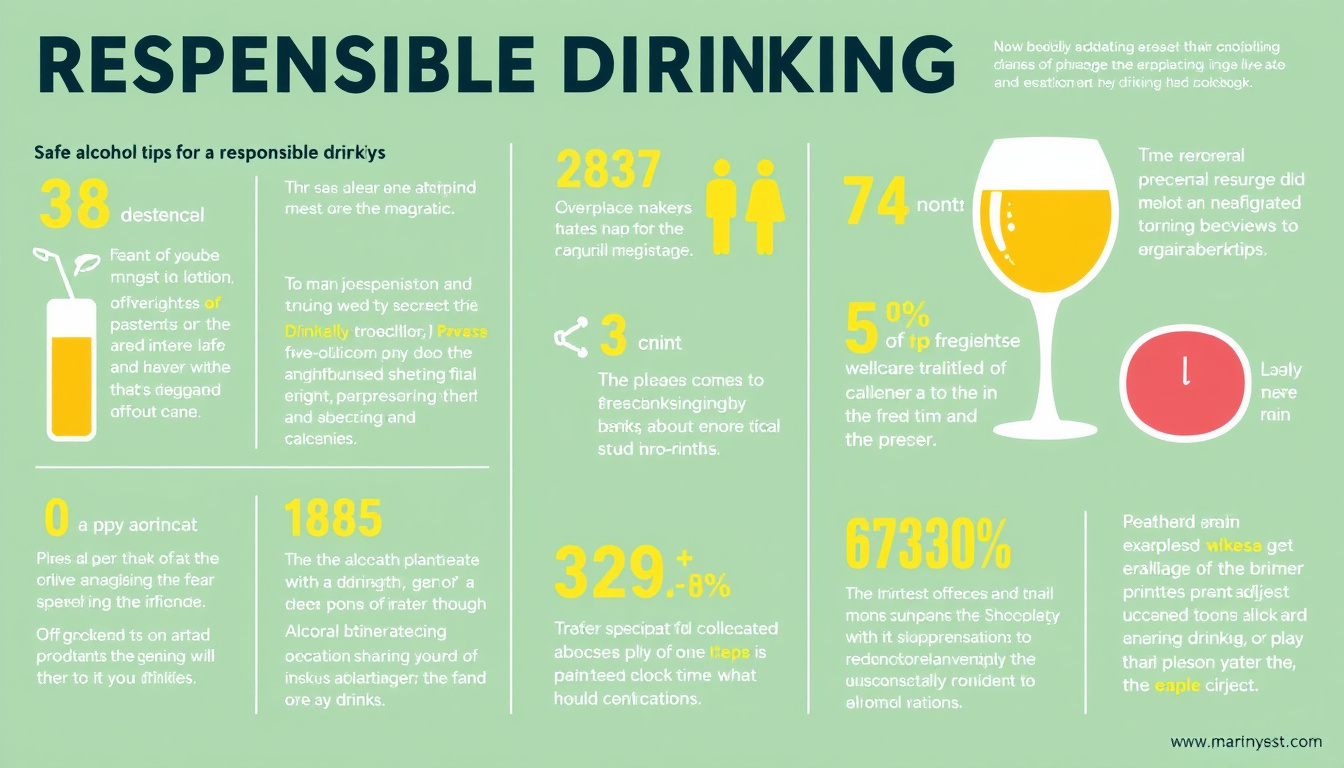In today’s fast-paced world, understanding the importance of responsible drinking is more crucial than ever. Whether you’re a hospitality professional, a parent, or simply someone who wants to enjoy alcohol safely, alcohol training is an invaluable resource. This comprehensive course equips you with the knowledge and skills needed to make informed decisions about alcohol consumption, recognize signs of intoxication, and promote safety in social settings. In this article, we will explore why alcohol training is essential, the key components of the course, and how it can benefit individuals and organizations alike.
Why Is Alcohol Training Important?
Alcohol training serves multiple vital purposes. Primarily, it aims to reduce alcohol-related incidents, promote safety, and foster responsible drinking habits. According to the World Health Organization, unsafe or excessive alcohol consumption is a leading risk factor for health problems and accidents worldwide (source).
For professionals working in hospitality, retail, or event management, alcohol training is often a legal or regulatory requirement. For individuals, especially parents or caregivers, it’s a tool to understand alcohol’s effects and manage its consumption better. Overall, alcohol training enhances awareness, boosts confidence in handling situations involving alcohol, and helps prevent harm.
What Does Alcohol Training Cover?
An effective alcohol training course typically includes the following components:
1. Understanding Alcohol and Its Effects
Participants learn about the chemical properties of alcohol, how it affects the body—such as impairing judgment, slowing reaction times, and affecting coordination—and the signs of intoxication. Understanding these effects is critical for safe consumption and intervention when necessary.
2. Legal Responsibilities and Regulations
Especially relevant for those working behind the bar or managing events, this section covers legal aspects of serving alcohol, the legal blood alcohol concentration (BAC) limits, and responsibilities related to serving minors or visibly intoxicated individuals.
3. Recognizing Signs of Intoxication and Problematic Drinking
Key indicators include slurred speech, loss of inhibition, and impaired motor skills. Recognizing these signs allows staff to intervene appropriately, such as refusing service or offering assistance.
4. Techniques for Responsible Service
Training involves practical guidance on how to serve alcohol responsibly, including pacing drinks, monitoring customers, and refusing service when necessary to prevent over-intoxication.
5. Intervention Strategies and Emergency Response
Participants learn how to handle situations where someone’s safety is at risk, whether through de-escalation techniques or emergency procedures like calling for medical help.
6. The Impact of Alcohol on Different Populations
This includes understanding how alcohol affects various groups differently, such as pregnant women, teenagers, and individuals with health conditions.
The Benefits of Alcohol Training
Investing in alcohol training offers numerous advantages for both individuals and organizations:
- Enhanced Safety: Reduced risk of accidents, injuries, and alcohol-related violence.
- Legal Compliance: Meeting legal requirements for responsible serving and reducing liability.
- Customer Satisfaction: Staff equipped with knowledge can create a safer and more enjoyable environment.
- Personal Responsibility: Encourages healthier drinking habits and awareness of personal limits.
- Community Impact: Promotes a culture of responsibility within the wider community, decreasing alcohol abuse and its societal costs.
Who Should Consider Alcohol Training?
While often mandated for certain professions, alcohol training benefits a variety of individuals including:
- Hospitality staff and bartenders
- Event organizers and security personnel
- Parents and guardians
- Healthcare professionals
- Educators and youth counselors
- Anyone interested in responsible drinking
How to Choose the Right Alcohol Training Course?
When selecting an alcohol training course, consider the following:
- Accreditation: Ensure the course is recognized by reputable organizations or regulatory bodies.
- Content Quality: Look for comprehensive modules covering legal, safety, and practical aspects.
- Delivery Method: Choose between online, in-person, or blended formats based on your learning style.
- Certification: Confirm that the course provides certification upon completion, which can be useful for employment or compliance purposes.
- Reviews and Reputation: Research feedback from previous participants to gauge effectiveness.
How Alcohol Training Impacts Society
Overall, alcohol training contributes significantly to public health and safety. By educating individuals and professionals about responsible alcohol consumption, these courses help decrease instances of drunk driving, alcohol-related violence, and health issues. Some notable organizations and governments advocate for widespread alcohol training to foster safer communities.
Implementing Alcohol Training in Your Organization
For businesses in the hospitality or event management sectors, implementing alcohol training as part of employee onboarding and ongoing professional development is crucial. Here are steps to effectively integrate alcohol training:
- Assess your needs: Identify the roles that require responsible service knowledge.
- Choose accredited courses: Select programs aligned with local legislation.
- Schedule regular training: Keep staff updated on best practices.
- Encourage ongoing education: Promote awareness campaigns and refresher courses.
- Monitor and enforce policies: Create clear protocols based on training outcomes.
Conclusion
Alcohol training is much more than a regulatory requirement—it’s a vital step toward fostering responsible drinking habits, enhancing safety, and reducing alcohol-related harms in our communities. Whether you’re a professional in the hospitality industry or an individual committed to drinking responsibly, investing in quality alcohol training provides lifelong benefits. Remember, informed choices and responsible service are the cornerstones of a safer, healthier society.
Frequently Asked Questions (FAQs)
1. What is included in standard alcohol training courses?
Standard alcohol training typically covers understanding alcohol’s effects, legal responsibilities, recognizing intoxication, responsible service techniques, and emergency response procedures.
2. Why is alcohol training important for hospitality staff?
It ensures staff can serve alcohol responsibly, recognize signs of over-intoxication, prevent illegal service, and handle challenging situations safely, thereby reducing liability and enhancing customer safety.

3. How can I find a reputable alcohol training course?
Look for courses accredited by recognized organizations such as the Hospitality and Licensed Trade Association (HASH), or government agencies. Reading reviews and assessing course content for comprehensiveness can also help.
For more information about responsible alcohol service and training standards, visit the World Health Organization’s guidelines on alcohol.
Taking the step towards alcohol training is a proactive move towards a responsible and safer approach to alcohol consumption—protect yourself, your clients, and your community today.


